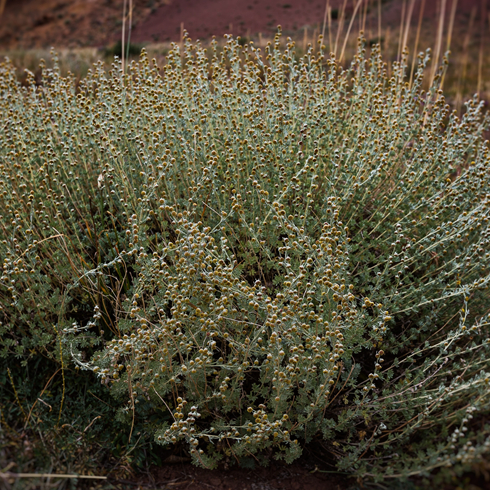
Artemisia herba-alba
Scientific names: Artemisia herba-alba
Family: Compositae
Alternate names: Absinthe du Désert, AHAE, AHE, Armoise Herbe Blanche, Artemisia, Chih, Common Wormwood, Common Worm Wood, Desert Wormwood, Herba Alba, Shih, Thym des Steppes
Background
Artemisia herba-alba is a short shrub native to Northern Africa and the Middle East. The parts that grow above the ground and roots are used as medicine.
Artemisia herba-alba contains chemicals that fight certain parasites and bacteria. It might also affect blood sugar levels.
People use Artemisia herba-alba for stomach pain, anxiety, common cold, diabetes, parasitic infections, and many other conditions, but there is no good scientific evidence to support these uses.
Don't confuse Artemisia herba-alba with other herbs with similar common names, including mugwort, sweet Annie, tarragon, wormseed, wormwood, and yin chen. These are not the same.
Artemisia herba-alba contains chemicals that fight certain parasites and bacteria. It might also affect blood sugar levels.
People use Artemisia herba-alba for stomach pain, anxiety, common cold, diabetes, parasitic infections, and many other conditions, but there is no good scientific evidence to support these uses.
Don't confuse Artemisia herba-alba with other herbs with similar common names, including mugwort, sweet Annie, tarragon, wormseed, wormwood, and yin chen. These are not the same.
Safety Safety definitions
When taken by mouth: There isn't enough reliable information to know if Artemisia herba-alba is safe. Side effects might include low blood pressure and low heart rate.
Surgery: Artemisia herba-alba might affect blood glucose levels. This might interfere with blood sugar control during and after surgery. Stop taking Artemisia herba-alba at least 2 weeks before a scheduled surgery.
Special Precautions & Warnings:
Pregnancy and breast-feeding: There isn't enough reliable information to know if Artemisia herba-alba is safe to use when pregnant or breast-feeding. Stay on the safe side and avoid use.Surgery: Artemisia herba-alba might affect blood glucose levels. This might interfere with blood sugar control during and after surgery. Stop taking Artemisia herba-alba at least 2 weeks before a scheduled surgery.
Effectiveness
Effective Effectiveness definitions
There is interest in using Artemisia herba-alba for a number of purposes, but there isn't enough reliable information to say whether it might be helpful.
Dosing & administration
There isn't enough reliable information to know what an appropriate dose of Artemisia herba-alba might be. Keep in mind that natural products are not always necessarily safe and dosages can be important. Be sure to follow relevant directions on product labels and consult a healthcare professional before using.
Interactions with pharmaceuticals
Medications for diabetes (Antidiabetes drugs)
Interaction Rating=Moderate Be cautious with this combination.
Artemisia herba-alba might lower blood sugar levels. Taking Artemisia herba-alba along with diabetes medications might cause blood sugar to drop too low. Monitor your blood sugar closely.
Interactions with herbs & supplements
Herbs and supplements that might lower blood sugar: Artemisia herba-alba might lower blood sugar. Taking it with other supplements with similar effects might lower blood sugar too much. Examples of supplements with this effect include aloe, bitter melon, cassia cinnamon, chromium, and prickly pear cactus.
Interactions with foods
There are no known interactions with foods.
vital.ly has licensed monographs from TRC Healthcare.
This monograph was last reviewed on 31/07/2024 10:00:00. Monographs are reviewed and/or updated multiple times per month and at least once per year.
Natural Medicines disclaims any responsibility related to medical consequences of using any medical product. Effort is made to ensure that the information contained in this monograph is accurate at the time it was published. Consumers and medical professionals who consult this monograph are cautioned that any medical or product related decision is the sole responsibility of the consumer and/or the health care professional. A legal License Agreement sets limitations on downloading, storing, or printing content from this Database. No reproduction of this monograph or any content from this Database is permitted without written permission from the publisher. It is unlawful to download, store, or distribute content from this site.




